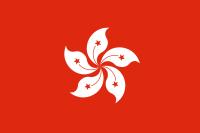 Last October, I traveled to Hong Kong to speak about SVS at a Conference dubbed EDiversity. Yes, you get it: diversity in education. I guess that’s one way for frustrated parents to address the high stakes, regimented curriculum, and aggressive testing models that exist in Hong Kong and most modern societies across the world.
Last October, I traveled to Hong Kong to speak about SVS at a Conference dubbed EDiversity. Yes, you get it: diversity in education. I guess that’s one way for frustrated parents to address the high stakes, regimented curriculum, and aggressive testing models that exist in Hong Kong and most modern societies across the world.
The conference was pitched on alternative approaches to the mainstream model that was described as: “Behave + study well = University + success ever after.” In HK this means: 800,000+ school children, 150+ months of school, 100+ (high stakes) tests, exams, and interviews, 60 hours of schooling and homework each week, and finally a single exam to determine which 18% enter university.
In HK, two and three year olds compete in interviews to determine their eligibility for selective preschools. As an example, from the South China Morning Post, “Pinky Cheng Mei-nang, 38, is another tiger mum-turned-revolutionary. She once applied to more than 30 kindergartens across several districts for her son, forcing the then two-year-old to endure several interviews a week, sometimes two in a day.” Academies and “cram-schools” are everywhere. It’s competition from the get-go. And more and more students and parents (and teachers also, apparently) are looking for alternatives. This was the thrust of this 2-day, weekend conference with sold out seating for both Saturday and Sunday sessions.
As you can imagine, speakers covered the gamut of today’s alternative approaches: homeschooling, unschooling, Montessori, Reggio Emilia, Waldorf, as well as several local alternative approaches: Gaia School (nature and humanism), Rhenish School (Christian, holistic), First Code Academy (focus on technology), Lee Shiu Kee School of Creativity (arts focus), Floating Classroom (Christian, team building, sailing, teens), GoGetters (Christian, at-risk), Cheong Wong Wai (Integrated Education-Whole School Approach), Free Tutorial World (matching students & tutors), Youth College (vocational training), and more. (It appears that many of the non-governmental schools (in Hong Kong) have a basis in a particular religion or a moral belief system.) And yes, Sudbury Valley School had been invited to speak, and I was suggested and accepted.
The conference participants also heard from a number of university academics, psychologists, homeschoolers and “unschoolers.” In every respect it fulfilled the title of the gathering reflecting Educational Diversity.
What struck me as most encouraging were the words and thoughts expressed by several speakers who were drawn from the mainstream — colleges of education at prominent universities. For example, the introductory speaker, Professor Cheng Kai Ming, Chair Professor of Faculty of Education at The University Of Hong Kong (host site for the Conference), talked about a “changed and changing society.” His words hit the commonly heard themes that we all acknowledge: that people need to be creative, make decisions, analyze and synthesize, take risks, use their brains. That schools need to be able to prepare them for this, and mainstream schools aren’t doing this now.
The keynote speaker, Emeritus Professor Albert H. Yee, a cultural and social psychologist and Fellow of the American Psychological Association (he is American and has worked in the U.S., Japan, China, Hong Kong, and Singapore), spoke about babies developing thinking and reasoning in their first three years. And then Dr. Stephen Krashen, Professor Emeritus, University of Southern California, spoke about “free voluntary reading,” his term for the reading we do when no one is telling us what to read, and how kids absorb so much when they are reading for pleasure or for information they want, not for an assignment.
These three scholars expressed ideas and thoughts that we’ve always held at Sudbury Valley School, as did many of the other speakers, in one form or another.
My own talk was very well received. I had the task of describing something very far from anything they’d conceived of, never mind as a ‘“school” (and a school from which one can then lead a successful life) to an audience of about 350 people in the plenary session. This was followed by two successive “workshops” (basically Q & A sessions) regarding SVS. The available seating for 100 + was filled in both sessions, and the questions continued at the end.
That was the weekend.
On Monday evening and again on Tuesday afternoon, I conducted similar sessions downtown to groups organized by three people who hope to open a Sudbury Model school in Hong Kong in the near future. Michell Huang studied education here in the US a decade ago, is now the mother of a youngster, and wants a Sudbury Model school for her child, Hung Luu, of Chinese origin in Vietnam and raised in Germany, now lives in Hong Kong and is heavily invested in the idea of a Sudbury model school for his young children. And Michell’s husband, Arden Wong, is the third member of the team and a big Sudbury Model advocate.
These sessions focused on introducing the Sudbury Model and raising interest in joining forces to open such a school in Hong Kong. The forum was a bit smaller than that of the weekend, but attendance for the evening session on Monday was nevertheless SRO. The group in attendance on Tuesday afternoon was a bit smaller, but still significant for a daytime session.
Hung Luu has since visited Sudbury Valley School to get a first hand impression and to explore his questions with others. I’m looking forward to a successful opening of Sudbury School Hong Kong and hoping for another visit in the near future.

